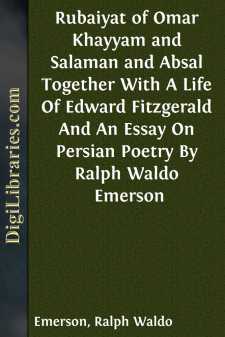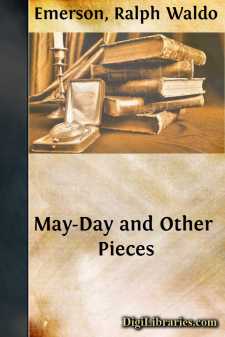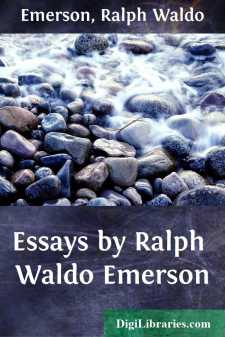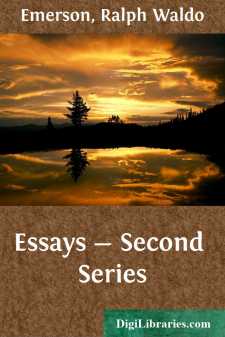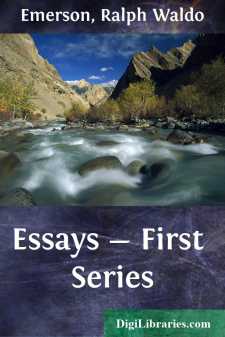Categories
- Antiques & Collectibles 13
- Architecture 36
- Art 48
- Bibles 22
- Biography & Autobiography 813
- Body, Mind & Spirit 142
- Business & Economics 28
- Children's Books 17
- Children's Fiction 14
- Computers 4
- Cooking 94
- Crafts & Hobbies 4
- Drama 346
- Education 46
- Family & Relationships 57
- Fiction 11829
- Games 19
- Gardening 17
- Health & Fitness 34
- History 1377
- House & Home 1
- Humor 147
- Juvenile Fiction 1873
- Juvenile Nonfiction 202
- Language Arts & Disciplines 88
- Law 16
- Literary Collections 686
- Literary Criticism 179
- Mathematics 13
- Medical 41
- Music 40
- Nature 179
- Non-Classifiable 1768
- Performing Arts 7
- Periodicals 1453
- Philosophy 64
- Photography 2
- Poetry 896
- Political Science 203
- Psychology 42
- Reference 154
- Religion 513
- Science 126
- Self-Help 84
- Social Science 81
- Sports & Recreation 34
- Study Aids 3
- Technology & Engineering 59
- Transportation 23
- Travel 463
- True Crime 29
Ralph Waldo Emerson
Ralph Waldo Emerson (1803-1882) was an influential American essayist, philosopher, and poet, best known for leading the Transcendentalist movement in the mid-19th century. His seminal works, including "Nature" and "Self-Reliance," emphasize individuality, self-exploration, and a deep connection with nature. Emerson's ideas profoundly shaped American thought, advocating for nonconformity, the power of the individual spirit, and the importance of intuition over empirical observation.
Author's Books:
Sort by:
TO E. FITZGERALD. Old Fitz, who from your suburb grangeWhere once I tarried for a while,Glance at the wheeling Orb of changeAnd greet it with a kindly smile;Whom yet I see, as there you sitBeneath your sheltering garden tree,And watch your doves about you flitAnd plant on shoulder, hand and knee,Or on your head their rosy feet,As if they knew your diet sparesWhatever moved in that full sheetLet down to...
more...
I. USES OF GREAT MEN. It is natural to believe in great men. If the companions of our childhood should turn out to be heroes, and their condition regal, it would not surprise us. All mythology opens with demigods, and the circumstance is high and poetic; that is, their genius is paramount. In the legends of the Gautama, the first men ate the earth, and found it deliciously sweet. Nature seems to exist...
more...
GOOD-BYE Good-bye, proud world! I'm going home:Thou art not my friend, and I'm not thine.Long through thy weary crowds I roam;A river-ark on the ocean brine,Long I've been tossed like the driven foam:But now, proud world! I'm going home. Good-bye to Flattery's fawning face;To Grandeur with his wise grimace;To upstart Wealth's averted eye;To supple Office, low and high;To...
more...
INTRODUCTION. OUR age is retrospective. It builds the sepulchres of the fathers. It writes biographies, histories, and criticism. The foregoing generations beheld God and nature face to face; we, through their eyes. Why should not we also enjoy an original relation to the universe? Why should not we have a poetry and philosophy of insight and not of tradition, and a religion by revelation to us, and...
more...
MAY-DAY. Daughter of Heaven and Earth, coy Spring,With sudden passion languishing,Maketh all things softly smile,Painteth pictures mile on mile,Holds a cup with cowslip-wreaths,Whence a smokeless incense breathes.Girls are peeling the sweet willow,Poplar white, and Gilead-tree,And troops of boysShouting with whoop and hilloa,And hip, hip three times three.The air is full of whistlings bland;What...
more...
LIFE OF EMERSON Ralph Waldo Emerson was born in Boston, May 25, 1803. He was descended from a long line of New England ministers, men of refinement and education. As a school-boy he was quiet and retiring, reading a great deal, but not paying much attention to his lessons. He entered Harvard at the early age of fourteen, but never attained a high rank there, although he took a prize for an essay on...
more...
I. THE POET. Those who are esteemed umpires of taste are often persons who have acquired some knowledge of admired pictures or sculptures, and have an inclination for whatever is elegant; but if you inquire whether they are beautiful souls, and whether their own acts are like fair pictures, you learn that they are selfish and sensual. Their cultivation is local, as if you should rub a log of dry wood...
more...
I. HISTORY. THERE is one mind common to all individual men. Every man is an inlet to the same and to all of the same. He that is once admitted to the right of reason is made a freeman of the whole estate. What Plato has thought, he may think; what a saint has felt, he may feel; what at any time has befallen any man, he can understand. Who hath access to this universal mind is a party to all that is or...
more...


